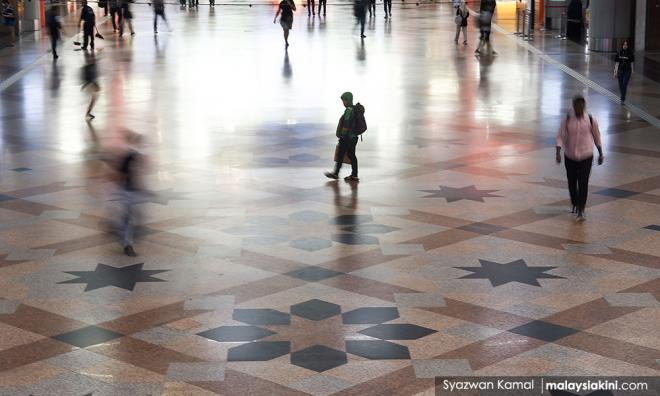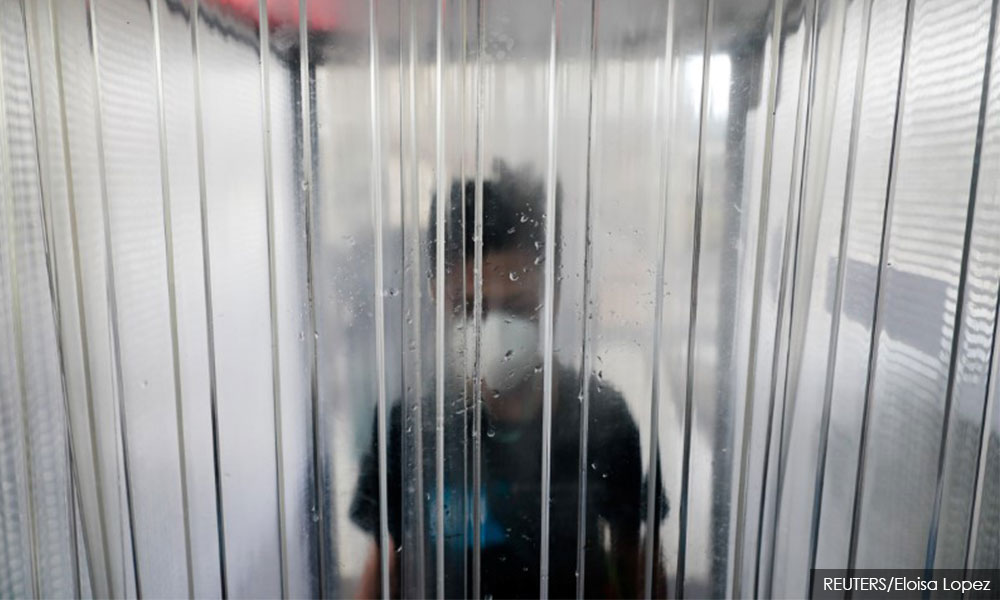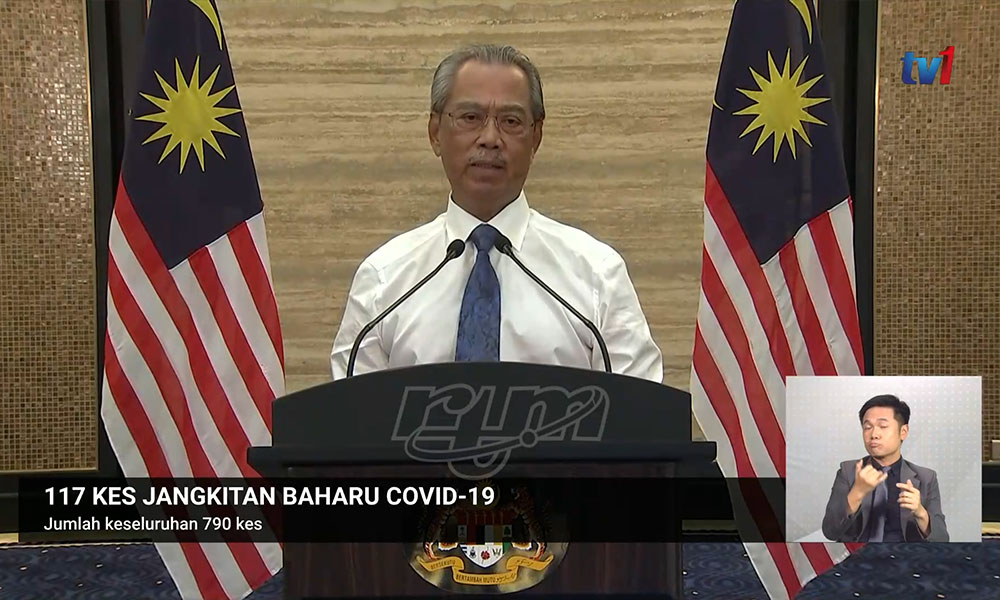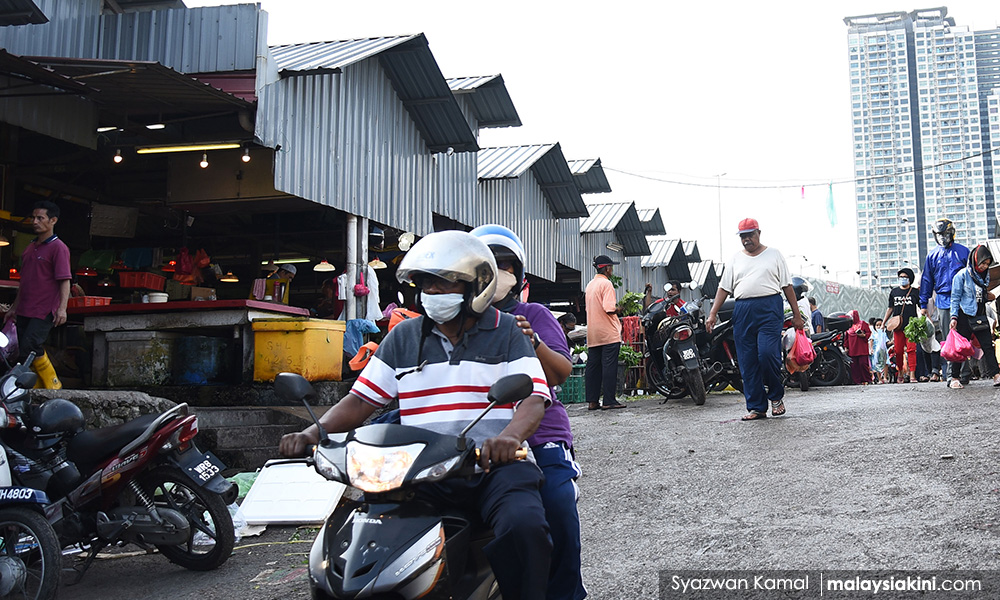
The movement control order (MCO) the government has chosen to use to fight Covid-19 has already caused problems which will result in a reduction in its efficacy and may even contribute to the spreading of the outbreak.
To some extent that’s only to be expected because such a thing as Covid-19 has not happened since the 1918 flu pandemic, according to experts some of whom grimly report that hundreds of thousands of people in the US and UK will die from it.
There is an urgent need to put more thinking heads together to ensure better anticipation of problems related to this unprecedented MCO, which is in effect a partial lockdown to reduce contact between human beings undertaken at great cost to the people and country.

But before we go into the mistakes, let’s look at the strategies currently available for fighting Covid-19. The latest publicly available report is one done by the Imperial College of London released on March 16. This is reported to have caused a major shift in the way the UK is handling the crisis.
According to the report, there are two fundamental strategies possible for controlling the virus: (a) mitigation, which focuses on slowing but not necessarily stopping epidemic spread – reducing peak healthcare demand while protecting those most at risk of severe disease from infection, and (b) suppression, which aims to reverse epidemic growth, reducing case numbers to low levels and maintaining that situation indefinitely.
We have already been mitigating by identifying victims and isolating them to slow the spread of the virus but that may no longer be enough.
As the report says: “We find that that optimal mitigation policies (combining home isolation of suspect cases, home quarantine of those living in the same household as suspect cases, and social distancing of the elderly and others at most risk of severe disease) might reduce peak healthcare demand by 2/3 and deaths by half. However, the resulting mitigated epidemic would still likely result in hundreds of thousands of deaths (in the US and UK) and health systems (most notably intensive care units) being overwhelmed many times over.
“For countries able to achieve it, this leaves suppression as the preferred policy option. We show that in the UK and US context, suppression will minimally require a combination of social distancing of the entire population, home isolation of cases and household quarantine of their family members. This may need to be supplemented by school and university closures though it should be recognised that such closures may have negative impacts on health systems due to increased absenteeism.”
This suppression is what we are trying to do via the MCO – to reduce contact between human beings by basically forcing most of them to stay at home and reduce human-to-human contact. The first mistake is that this has not been properly conveyed to the public in the PM’s announcement last Monday.

It was compounded by a rather silly alert that morning that the PM will make an important announcement at 9pm on Monday night (delayed to slightly after 10pm) on Covid 19. The public surmised correctly way before the announcement that this was some sort of lockdown and flooded the supermarkets, and while clearing shelves, increasing chances of infection and causing needless panic.
The second mistake was that little was said about the mechanics of the MCO. What about the hundreds of thousands and possibly millions in hostels and dorms who have been told to go back? What about 300,000 people, commuting to Singapore daily? Are those supplying services and goods to essential services also essential? Can I go back to my hometown and work from there? Imagine the kind of spread of infection such people movement will have if left unchecked.
Mistake no 3: On the full day before the MCO, the government did little to allay concerns and to set procedures and clarify questions. By evening, many people were moving out of the city in Kuala Lumpur and the surrounding areas, causing the police to issue an order banning interstate travel. And then they revoked it. And now they have re-implemented it.
Is two weeks enough?
Meanwhile, there are pictures of people having their meals undisturbed at stalls, eating their packed food in the company of others at the tables outside these stalls. Perhaps if they had called this a partial lockdown, as indeed it should be to suppress the infection, it would have been more effective.
If the government does not address such open breaches of the intention of the MCO, we have the rather ridiculous situation of an MCO which worsens the pandemic by actually encouraging movement of people during the two weeks. The costly MCO may worsen the situation unless the government pulls up its socks!

And then there is that troubling question: Is the two weeks enough? Let’s turn to informed opinion for this and the Imperial College report which says: “The major challenge of suppression is that this type of intensive intervention package – or something equivalently effective at reducing transmission – will need to be maintained until a vaccine becomes available (potentially 18 months or more). Given that we predict that transmission will quickly rebound if interventions are relaxed.
“We show that intermittent social distancing – triggered by trends in disease surveillance – may allow interventions to be relaxed temporarily in relative short time windows, but measures will need to be reintroduced if or when case numbers rebound.”
That’s frightening. The social and economic impact, especially the latter, will become unbearable if such a partial lockdown continues or if it has to be repeatedly imposed. The economic cost will be in the billions and many people may well lose the ability to earn an income to just sustain their daily needs.
The report says: “Last, while experience in China and now South Korea show that suppression is possible in the short term, it remains to be seen whether it is possible long term, and whether the social and economic costs of the interventions adopted thus far can be reduced.”
Yes, the government has made mistakes and hopefully, it will get more thinking and qualified people into whatever committees we have to fight the virus. I am sure the former health minister and the former deputy are well-acquainted with Covid-19 issues and they should be immediately co-opted to ensure continuity and a better knowledge base. I’m certain they will be happy to serve.
In the meantime, us Malaysians need to keep ourselves better informed and help the government fight this infection. Can’t we all stay at home or wherever we are at this point of time and go out just to get supplies or for major emergencies?
It is a matter of life and death after all – perhaps in the thousands eventually. Some of us will perish, so let’s do what we can to reduce the numbers at least.
P GUNASEGARAM is editor-in-chief of Focus Malaysia. - Mkini



No comments:
Post a Comment
Note: Only a member of this blog may post a comment.